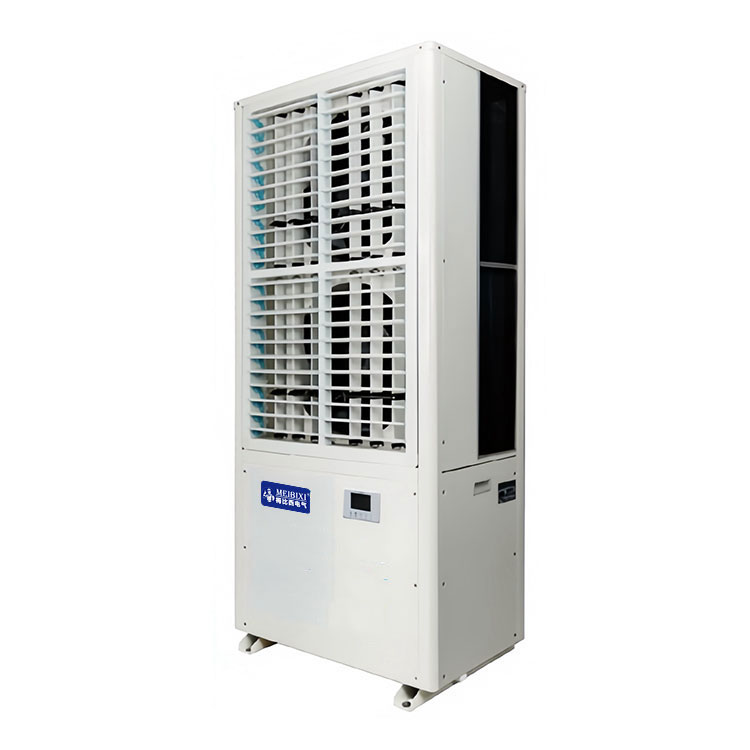Industrial Air Conditioners: Essential Cooling Solutions for Modern Businesses
2025-05-07
In today’s industrial landscape, maintaining optimal working conditions is essential for both productivity and safety. One of the most critical elements of a comfortable and efficient workspace, especially in factories, warehouses, and large manufacturing facilities, is temperature control. This is where industrial air conditioners come into play. These robust cooling systems are designed to meet the unique demands of industrial environments, ensuring that workers can operate in a safe, comfortable, and productive environment. In this article, we will explore the significance of industrial air conditioners, how they work, and why they are a must-have for many industries.

What is an Industrial Air Conditioner?
An industrial air conditioner is a large, heavy-duty cooling unit designed to cool down expansive commercial or industrial spaces. Unlike standard residential air conditioning systems, industrial units are specifically engineered to handle the rigorous demands of large-scale operations. These systems are capable of maintaining precise temperature and humidity levels in spaces such as factories, manufacturing plants, data centers, warehouses, and even large retail environments.
Industrial air conditioners are typically more powerful, efficient, and durable than their residential counterparts. They often come with specialized features that allow them to perform in environments where extreme temperatures, high humidity, and continuous operation are common.
Key Features of Industrial Air Conditioners
1. High Cooling Capacity:
Industrial air conditioners are designed to cool large areas. They offer high cooling capacity, often measured in tons, to ensure that even the largest and most heat-intensive environments can maintain a comfortable temperature. Their cooling power allows them to tackle the heat produced by machinery, equipment, and large numbers of workers.
2. Energy Efficiency:
While industrial air conditioners are powerful, many modern models are also highly energy-efficient. With rising energy costs and growing environmental concerns, energy-efficient industrial air conditioning units help businesses reduce their carbon footprint and minimize operating costs. Advanced technologies such as variable-speed compressors and eco-friendly refrigerants are increasingly common in newer models.
3. Durability and Longevity:
Industrial environments can be harsh on equipment, so industrial air conditioners are built with durable materials that can withstand high levels of wear and tear. They are designed to operate in extreme conditions, including high ambient temperatures, dust, and exposure to chemicals. These units are expected to run continuously or for extended periods, making longevity and reliable performance essential.
4. Customizable Cooling Solutions:
Depending on the requirements of the industrial setting, air conditioning units can be customized to provide the best possible cooling performance. This might include options for dehumidification, air filtration, and advanced climate controls to meet the specific needs of certain operations. For example, data centers may need a cooling system that offers precise temperature control, while a factory may need one capable of cooling large machines and assembly lines.
5. Remote Monitoring and Control:
Many modern industrial air conditioners come with smart capabilities, such as remote monitoring and control. This allows facility managers to track the performance of the air conditioning system, adjust settings, and receive maintenance alerts remotely. This ensures the system runs efficiently and avoids downtime, which can be costly in industrial settings.
Benefits of Industrial Air Conditioners
1. Improved Worker Comfort and Productivity:
One of the most significant benefits of industrial air conditioning is the improvement in worker comfort. High temperatures can cause fatigue, heat stress, and other health issues, reducing workers' ability to perform at their best. By providing a cool, stable working environment, industrial air conditioners help improve the overall well-being of employees, resulting in higher productivity, fewer sick days, and a safer workplace.
2. Enhanced Equipment Performance and Longevity:
Many industrial environments involve machinery that generates significant amounts of heat. Without proper cooling, this heat can damage equipment, leading to breakdowns or inefficient performance. Industrial air conditioners help keep the temperature at optimal levels, ensuring that machinery runs smoothly and lasts longer. This contributes to fewer maintenance costs and increased efficiency in production processes.
3. Preventing Overheating:
In manufacturing and other heavy-duty industries, overheating can lead to accidents, equipment failures, and potentially dangerous situations. Industrial air conditioners prevent excessive heat buildup, creating a safer work environment and reducing the risk of overheating-related incidents.
4. Energy Savings:
While industrial air conditioning systems are initially more expensive than residential systems, they can save businesses money in the long run by reducing energy consumption. Advanced models are designed with energy efficiency in mind, meaning they use less electricity to cool large spaces. Over time, businesses can see significant cost savings from lower energy bills.
5. Control of Humidity and Air Quality:
Many industrial settings require not only cooling but also precise control of humidity levels. Excess moisture in the air can lead to equipment rust, spoilage of goods, and uncomfortable working conditions. Industrial air conditioners often come with built-in dehumidifiers to regulate humidity, improving air quality and preventing moisture-related issues.
Applications of Industrial Air Conditioners
1. Manufacturing Plants:
In a manufacturing environment, temperature control is critical to ensure that the products being made are not compromised by excessive heat. Air conditioners keep the workspace comfortable for workers and maintain a consistent environment that is optimal for production.
2. Data Centers:
Data centers house sensitive electronic equipment, including servers and computers, which generate a lot of heat. Without effective cooling, this equipment could overheat and fail. Industrial air conditioners in data centers are essential for maintaining the necessary low temperatures and humidity levels to protect the equipment.
3. Warehouses and Distribution Centers:
In large warehouses or distribution centers, air conditioning ensures that the environment is comfortable for workers and that sensitive products (such as food, pharmaceuticals, or electronics) are stored at the proper temperature.
4. Chemical and Pharmaceutical Industries:
Temperature control is also crucial in industries like pharmaceuticals, where certain chemicals and medicines require specific storage conditions. Industrial air conditioners help maintain consistent temperatures to preserve the quality and efficacy of these products.
5. Food Processing and Storage:
The food industry relies on industrial air conditioners to regulate temperature in processing plants and storage facilities. Maintaining the right temperature prevents spoilage and ensures that food products remain safe for consumption.
Conclusion
Industrial air conditioners are indispensable tools for ensuring comfort, safety, and efficiency in a wide range of industries. From cooling large spaces to enhancing worker productivity and protecting valuable equipment, these systems provide a host of benefits that are crucial for the smooth operation of modern businesses. With the advancement of technology, industrial air conditioners are becoming more energy-efficient, customizable, and capable of providing precise climate control. For any business that relies on a controlled environment, investing in a high-quality industrial air conditioning system is a wise decision that ensures long-term success and sustainability.


